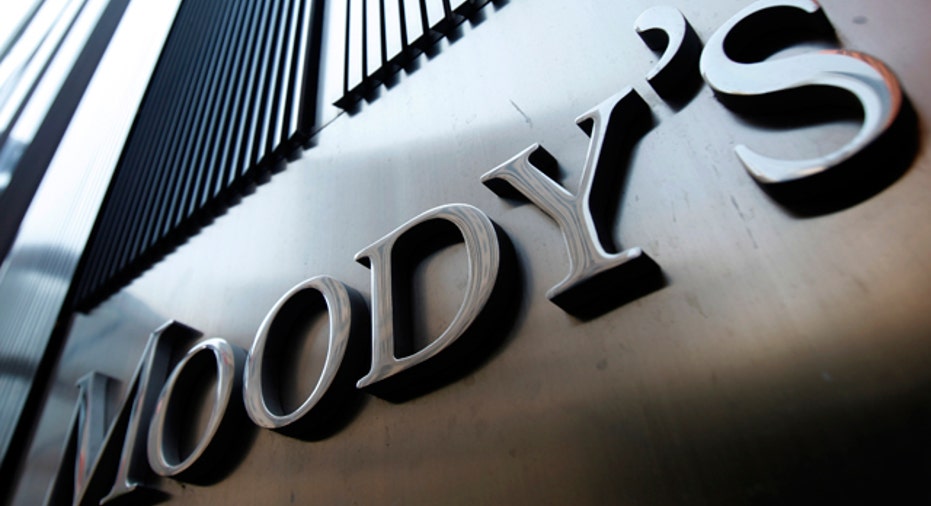Moody's Slices Ratings on 12 U.K. Lenders

The credit rating of two top UK banks were cut on Friday due to the likelihood of less state support in a future crisis, as Britain sought to reassure investors its banks were well capitalised and able to cope with a European debt crisis.
Ratings agency Moody's cut its rating on Royal Bank of Scotland by two notches, downgraded Lloyds by one notch, and cut its ratings on Santander UK , the Co-Operative Bank, Nationwide Building Society and seven other smaller British building societies.
Banks had been on review for possible downgrade as part of a trend where state support for lenders is being reduced, and reforms proposed last month by Britain's Independent Commission on Banking (ICB) had been expected to have a negative influence.
"The market's central expectation around the ICB impact had been for a 2-notch downgrade across the board, so it's better than expected," said Gareth Hunt, analyst at Investec.
But concern is growing that banks may need more capital as part of a wider European move to shore up the industry to tackle a debt crisis and restore investor confidence. The European Union plans to present a plan for member state to coordinate a bank recapitalisation.
UK finance minister George Osborne said Britain's banks remained well-capitalised and in better shape than many of their European rivals, who face bigger losses on holdings of peripheral euro zone debt.
"I am confident that British banks are well capitalised, they are liquid, they aren't experiencing the kind of problems that some of the banks in the euro zone are experiencing at the moment," Osborne said in an interview with BBC radio.
RBS, 83 percent owned by the government, said it remained one of Europe's most strongly capitalised banks, responding to a Financial Times report citing concerns in government circles that it might need more state aid.
RBS's capital position came under strain under a "stress test" of lenders in the summer, raising fears it would need at least 5 billion pounds ($7.7 billion) more in a widespread recapitalisation. But analysts said its solvency was stronger than showed in the test, which included historical toxic losses shown by the bank and ignored a big reduction in its balance sheet.
"Compared to their European peers the UK banks are well positioned from a capital perspective," Elisabeth Rudman, senior vice president at Moody's, told Reuters after the downgrade. "But the environment they are operating in is still very tough and there's an awful lot of uncertainty out there in the euro zone."
Standard and Poor's on Friday downgraded the core banks of Franco-Belgian financial group Dexia by one notch, citing difficulties in securing wholesale funding and the need for increased collateral.
UK banks have raised over $120 billion in the last three years, forced by the government to raise low capital levels. In the same time German banks have raised about $40 billion, Italian banks have raised $29 billion and French banks -- seen as most in need of fresh funds -- have raised $22 billion, according to Reuters data.
By 1045 GMT RBS shares were down 4.23 percent and Lloyds was down 3.47 percent, underperforming a 0.79 percent fall by the European bank sector .
British gilt futures fell, underperforming Bunds after the a credit rating downgrade added to worries another bailout could be needed.
Moody's move reduced the uplift that RBS and Lloyds receive from state support to three notches, in line with UK rival Barclays and international peers like Bank of America . It did not reflect a deterioration in the financial strength of banks or the government, Moody's said.
It did not change its rating on Barclays or HSBC . Lloyds said the downgrade would only have a "minimal" impact on its funding costs.
Moody's said authorities did not yet have all the necessary tools to allow an orderly resolution of the largest, most complex banks, and proposals to reform the industry put forward by the Independent Commission on Banking (ICB) would take time.
"The implementation is still a long way off, but the trend is towards trying to lower the possibility of government support into banks, but we see that as taking time to unfold," Rudman said.
Moody's said the UK the government is likely to continue to provide some level of support to systemically important financial institutions, but is more likely now to allow smaller institutions to fail if they become troubled.
"What's really interesting is the polarity between the downgrade to small institutions and the lack of downgrade to the big institutions. This will have interesting consequences for the government's stated aims to increase competition in retail banking," Investec's Hunt said.



















